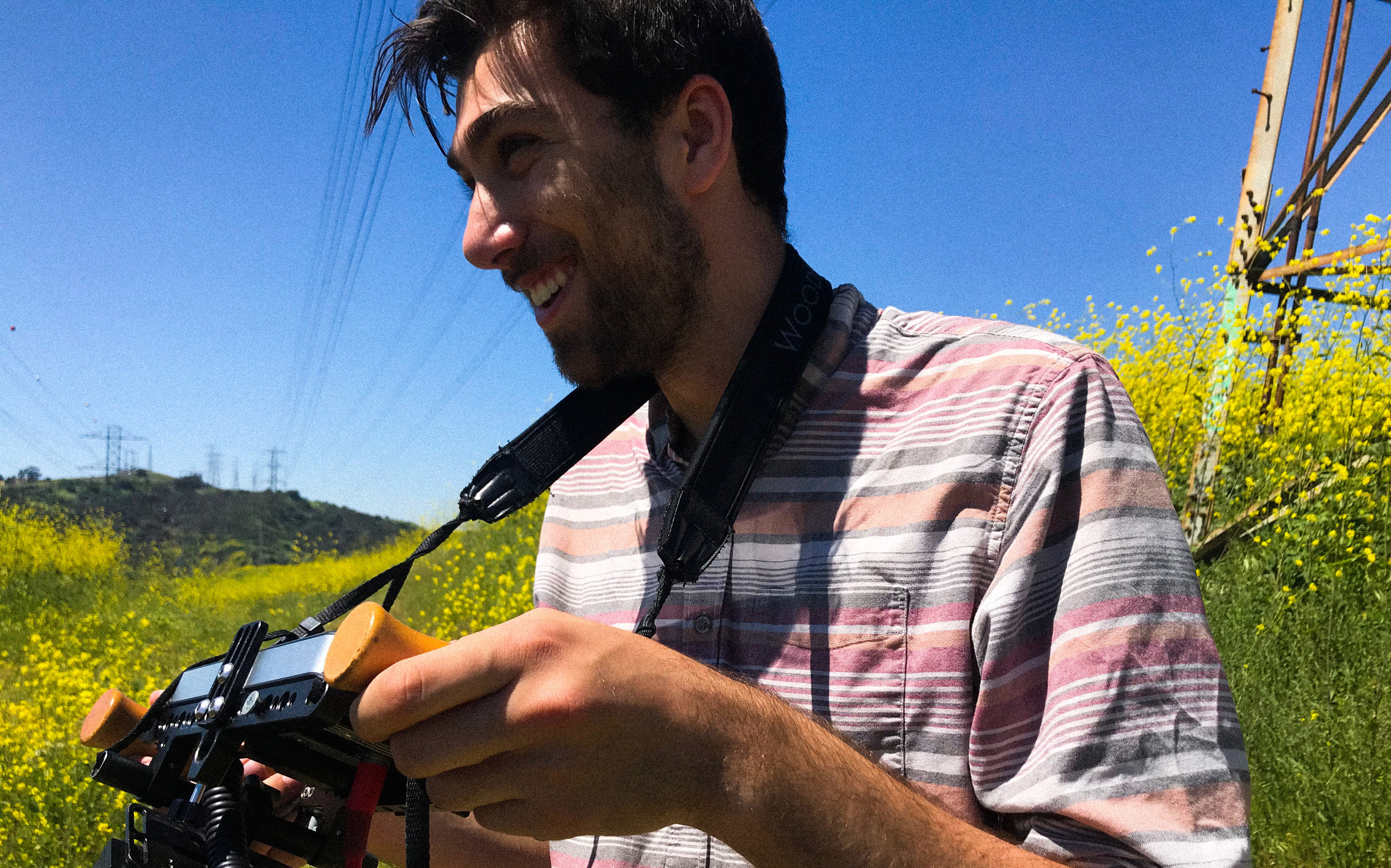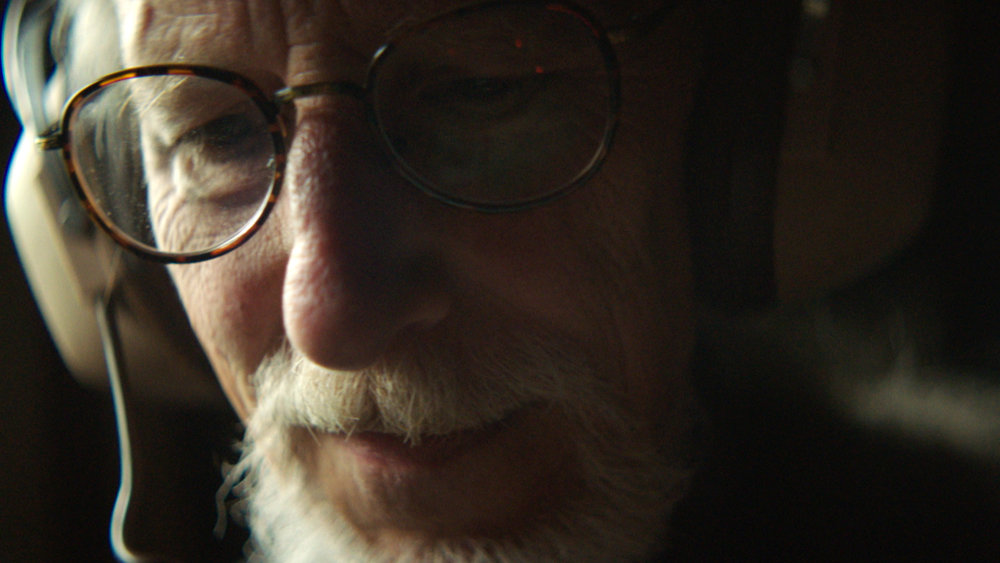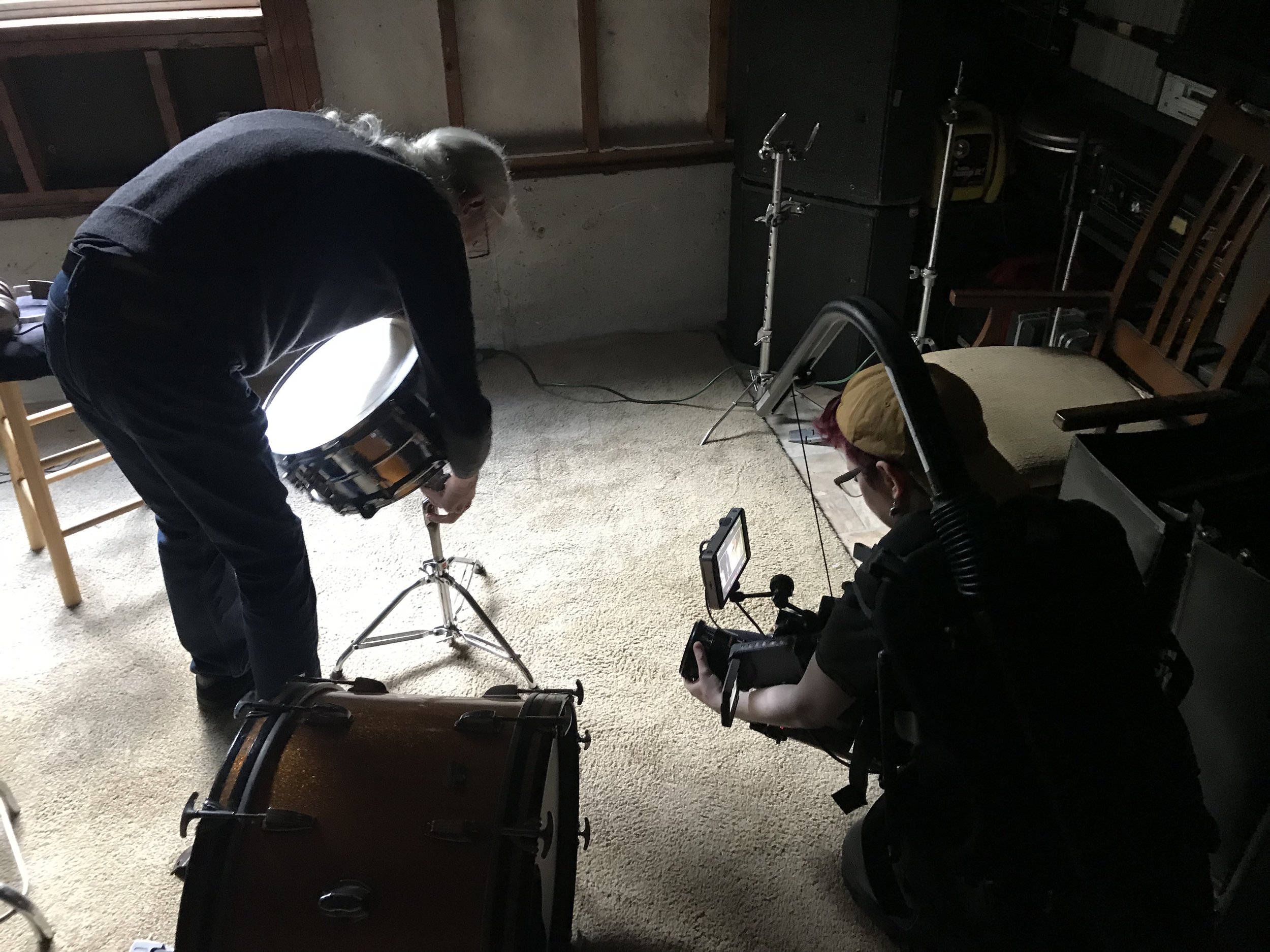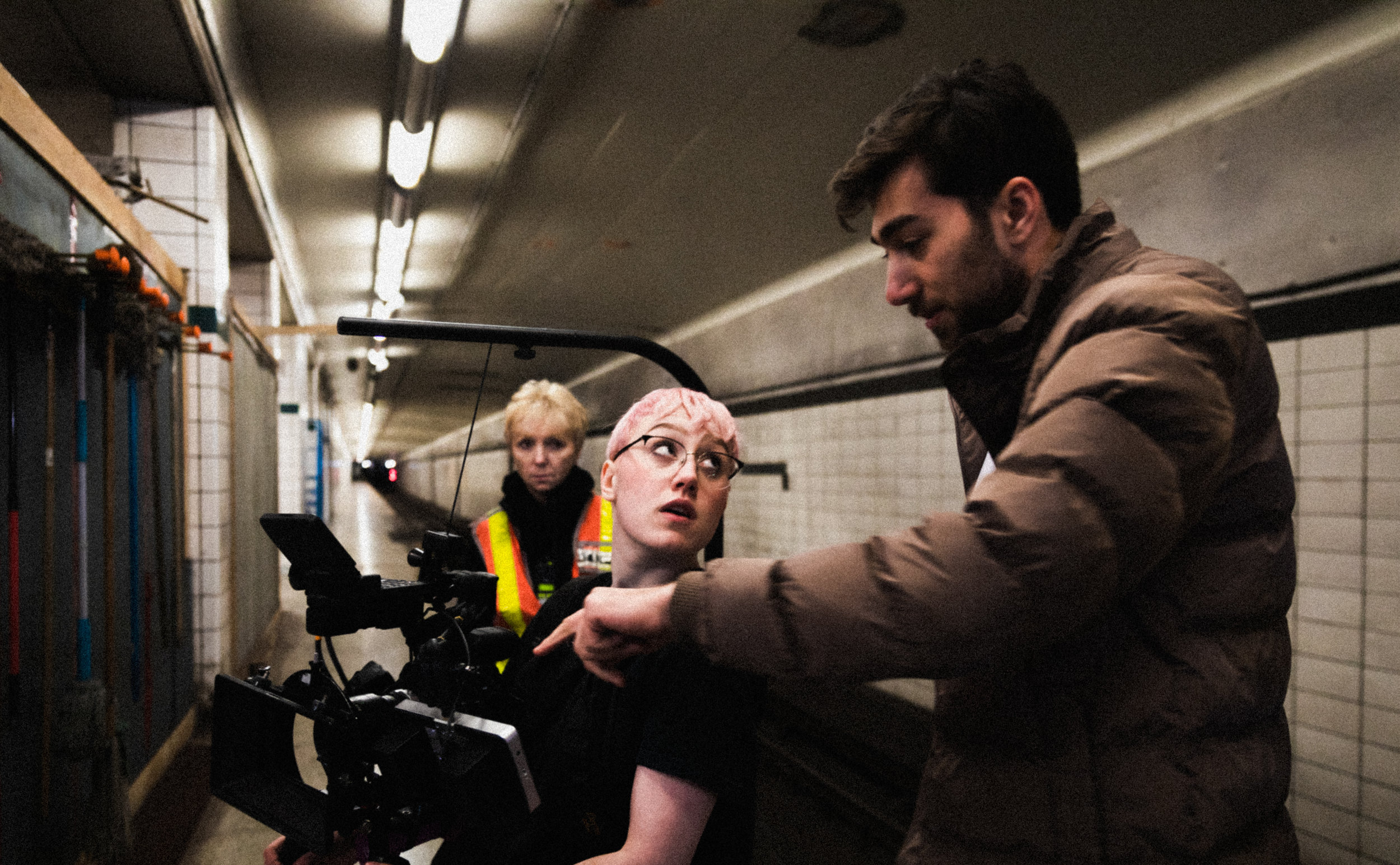June 3, 2019
ALUMNI SPOTLIGHT: Leo Pfeifer
NFFTY has grown into a wonderful community of over 2,500 filmmakers from around the world. Alumni have experienced successes in many areas of the media industry. To celebrate these achievements, we are highlighting NFFTY alumni here!
Leo Pfeifer, primarily a director and editor, is a NFFTY ‘12 - ‘18 alumni who was recently chosen as the winner of The NextFilmFestival Award for his documentary Lost Time (along with Morgana McKenzie, colorist and cinematographer extraordinaire, check out her Alumni Spotlight here)!
Lost Time, which tells the story of professional drummer Paul Wager, premiered on Director’s Notes, and was nominated by the Canadian Society of Cinematographers for the Robert Brooks Award for Documentary Cinematography.
OUR INTERVIEW WITH LEO PFEIFER:
What was the most difficult part of telling Paul’s story in Lost Time?
The scale of Paul's journey was the hardest part to tackle. At times it felt impossible: telling a story that spanned a lifetime in the format of an eight minute short film. I recorded about six hours of interviews with Paul, so it was a constant process of concentrating the material I had into the most clear essence of his story. When you're making a narrative style documentary, sometimes you have to turn a decade into five seconds to create the most compelling through line in a story. Beyond that, the most challenging aspect was needing to ask Paul to dig into a past - a past that was painful at times. The goal of my docs is for the audience to feel the story in an immediate sense - that it's unfolding right in front of them. They need to access the emotions of the subject, and for that to shine through the screen, the subject needs to access those emotions as well. I can't thank Paul enough for his willingness to take himself to those places. I think it's where the audience’s sense of empathy comes from.
How do you think shooting with such a limited crew affected your final product, and what did you learn from your experience?
All of Lost Time was shot with just myself, Morgana, and sometimes a PA. I see crew size as a tool, just like what camera or lenses you use. Our small crew allowed us to create more of an intimate atmosphere on set with Paul and I think that translates on screen. It certainly creates challenges - Morgana wasn't only DP but also gaffer, focus puller, etc., etc. and in addition to director I was helping set up lights, recording audio, plugging in batteries, dumping footage. The biggest lesson I took away is that (despite some people's strong views on this) there's no one way to shoot a film. I'm gearing up to shoot a film in the fall that will have a 15-20 person crew, and this summer I'm going to shoot another doc with a footprint equally as light as LOST TIME. It's about different approaches to different stories and there's no right or wrong approach. People will call you crazy, but it's their loss.
How do you balance your own creative projects and commercial work?
At the core, it's a completely symbiotic relationship. My own creative projects are what built and continue to build my reel and land all of my commercial work, and my commercial work is what pays for my otherwise money-losing passion projects like LOST TIME. Commercial work always comes with its challenges, but at the end of the day I'm getting paid to tell stories and that will always be a privilege that blows my mind!
Can you talk a little bit about what it’s been like to be involved with NFFTY from such a young age, and how NFFTY has impacted your life or career?
My first experience with NFFTY was in 2011. My film that year wasn't accepted, but I still went for a day - and it was one of the most inspirational things in film I've been part of. I was in awe at what I saw, and the next year I submitted two films and luckily they were both accepted. NFFTY has been my yearly weekend of creative refueling and the chance to meet some of the most talented young filmmakers out there. I really don't know where I'd be in my journey as a filmmaker without NFFTY. Every experience I've had with NFFTY has been incredible, except for the last day of the 2016 festival when I began to feel what turned out to be appendicitis. Despite that, I still made it through the closing night screening (but not the afterparty)!
What has your experience been like teaming up with other NFFTY alumni on projects like Wild and Lost Time?
I first met Morgana, director of Wild (which I edited) and DP of Lost Time, a few years ago at NFFTY. I was a big fan of her work and we'd kept in touch, but never had a chance to collaborate. I was taking some time for myself and knew I wanted to really dive into a doc project (which eventually turned into LOST TIME). Before I found Paul's story, I called Morgana and told her I wanted to make a cinematic, story-based doc and that I'd love for her to be DP. She asked me what the story was. I told her I didn't know yet - and to her credit, she jumped onboard once I found it. It was several months later when we were shooting LOST TIME that Morgana showed me some clips from Wild. We started talking about the film and before I knew it I had agreed to be the editor. Both of these projects were big steps up for us as filmmakers and our collaboration with each other was key to that - something that wouldn't have been possible without NFFTY.
Do you have any advice to give to young filmmakers?
I think when I'm 60, I'll still see myself as a young filmmaker so I'm not sure if I'll ever be qualified to give advice to this question - but I'll do my best. Learn the language of storytelling and visual storytelling and practice relentlessly to build a foundation in that. It's the core skill that's in demand, and if you have it you're unstoppable. Know that great equipment can help make a good film great but will never make a bad film good. Do everything you can to get in rooms where you can watch talented people work - absorb everything you can. Learn how to take constructive criticism and grow from it. Learn how to edit and shoot if you want to be a director, it'll influence your approach a ton. If someone tells you you're crazy for how you want to approach shooting a film, you're doing something right. Work with people you care about: some of my best collaborators have turned into my best friends and some of by best friends have turned into my best collaborators. And most important: always remember to drink water when you're on set.
What’s next for you?
So much! Morgana and I are in post on a short doc project we co-directed called WHY NOT that explores the unstoppable passion of five young people living in Toronto. I just picture locked the first narrative short I've made in a while. I'm getting ready to direct some music videos and another doc this summer. And I've been editing some really fun branded docs and pitching to direct some commercial projects!





